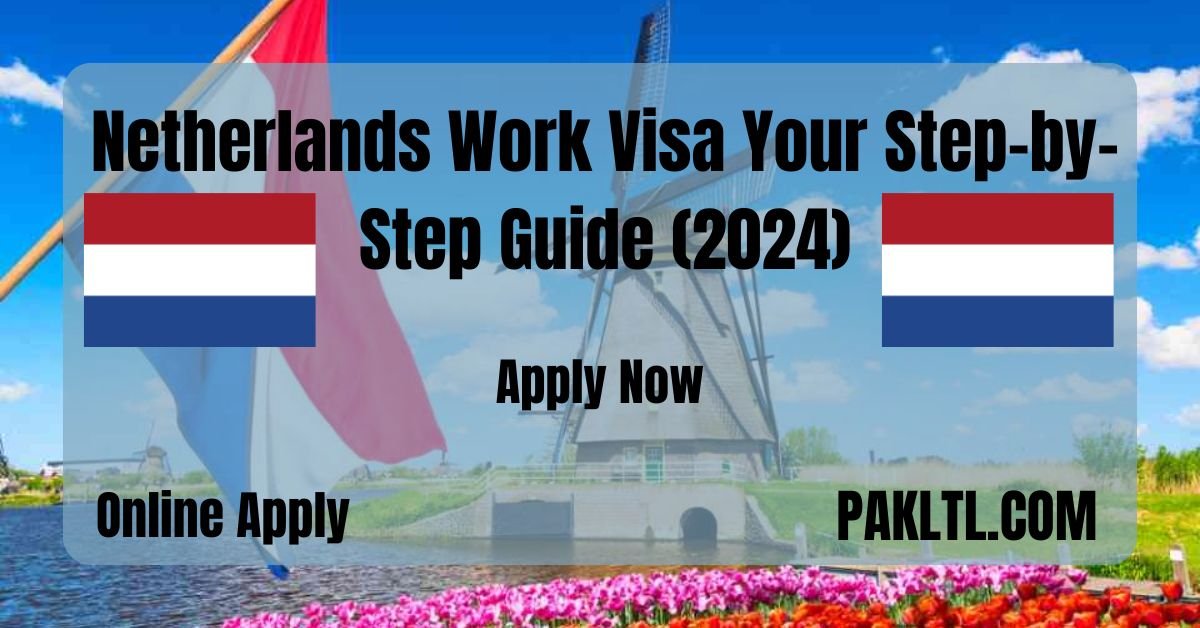Netherlands Work Visa: Your Step-by-Step Guide (2024)
Navigating the Netherlands’ work visa process can be complex, especially with updated rules and regulations in 2024. This complete guide provides everything you need to know, including the latest requirements, timelines, costs, and tips to successfully apply for a Netherlands work visa. Whether you’re a skilled worker, entrepreneur, student, or seasonal employee, this article will help you understand the process from start to finish.
Understanding the Netherlands Work Visa
The Netherlands offers several types of work visas depending on your employment status, skill level, and nationality. The work visa, officially known as a residence permit for employment, allows non-EU/EEA nationals to work in the country legally.
Key Work Visas Available in the Netherlands (2024):
- Highly Skilled Migrant Visa: For professionals with advanced skills.
- Orientation Year Visa: For recent graduates from Dutch universities or recognized global institutions.
- Seasonal Worker Visa: For workers in industries such as agriculture and horticulture.
- Entrepreneur Visa: For business owners and startups.
- Intra-Company Transfer Visa: For employees temporarily transferred within their company.
1. Eligibility Requirements
The eligibility criteria vary by visa type, but some general conditions include:
- A valid job offer from a Dutch employer.
- Employer sponsorship or a valid residence permit (for certain visa types).
- Meeting minimum salary thresholds, which are updated annually.
- Health insurance coverage in the Netherlands.
- No criminal record.
- For example, the minimum salary for a highly skilled migrant (as of 2024) ranges from €3,600 to €4,500 depending on age and qualifications.
2. Application Process
The Netherlands work visa process can be broken down into several clear steps:
Step 1: Get a Job Offer or Sponsorship
To start, you need a job offer from a recognized sponsor in the Netherlands. Employers must be registered with the Dutch Immigration and Naturalisation Service (IND) to hire foreign workers.
Step 2: Employer Applies for the Work Permit
Your employer will apply for your work permit on your behalf. The application must include detailed information about your role, salary, and other relevant documentation.
Step 3: Submit Personal Documents
You’ll be required to provide supporting documents such as:
- A valid passport.
- Proof of health insurance.
- Employment contract.
- Proof of qualifications (for certain jobs).
- Visa application form.
Step 4: Pay the Application Fee
As of October 2024, the Netherlands work visa application fee is approximately €320. This fee is non-refundable, so ensure all documents are correct before submitting.
Step 5: Biometrics & Interview
Some applicants may be required to provide biometric data (fingerprints and photos) at a Dutch consulate or embassy in their home country. In rare cases, an interview may be part of the process.
Step 6: Wait for Processing
The standard processing time for a Netherlands work visa is 2 to 4 weeks, but this can vary depending on your nationality and the type of visa. Some applications may take longer if additional checks are needed.
3. Common Pitfalls & Tips for Success
Navigating the Netherlands work visa process is easier with these expert tips:
- Start Early: Begin your application well in advance, as delays can occur.
- Ensure Completeness: Missing documents can lead to delays or rejection.
- Double-Check Employer Sponsorship: Ensure your employer is recognized by IND, or your application may be denied.
4. Visa Extension and Renewal
Your Netherlands work visa is typically valid for the duration of your employment contract, but it can be extended. For example, a highly skilled migrant visa can be extended as long as you continue to meet the eligibility criteria. Make sure to apply for an extension before your current visa expires to avoid penalties.
5. Costs and Fees Breakdown
Besides the application fee (€320), additional costs may include:
- Legalization of documents (if required).
- Travel expenses for interviews or biometrics.
- Health insurance premiums (mandatory for residents in the Netherlands).
6. Family Members and Dependents
Certain work visas, such as the highly skilled migrant visa, allow family members to join you in the Netherlands. Family members will need to apply for a dependent residence permit, which may have different requirements. Children can attend Dutch schools, and spouses may be eligible to work.
7. Special Cases: Entrepreneurs, Refugees, and Students
- Entrepreneurs: The Netherlands offers a start-up visa for innovators launching businesses. You’ll need a solid business plan and a recognized facilitator to support your growth.
- Refugees and Asylum Seekers: Refugees may be eligible to work under different conditions. Consult the IND for specialized advice.
- Students: International students can work part-time, but if you plan to work full-time after graduation, you’ll need to apply for an orientation year visa.
8. Monitoring Your Visa Status
You can check the status of your Netherlands work visa application through the IND portal. If there are delays, the IND may request additional documents. Always respond promptly to avoid unnecessary delays.
9. Conclusion: Your Pathway to a Netherlands Work Visa in 2024
Securing a Netherlands work visa in 2024 is a structured but detailed process. By understanding the types of visas available, meeting the requirements, and following each application step diligently, you can make the process smoother. Start your application early and stay organized, and soon you could be working in one of Europe’s most vibrant economies.
Social sharing
Make sure to follow this guide step by step to ensure a smooth application process and improve your chances of success. Don’t forget to share this article with anyone you know who might be planning to work in the Netherlands!
